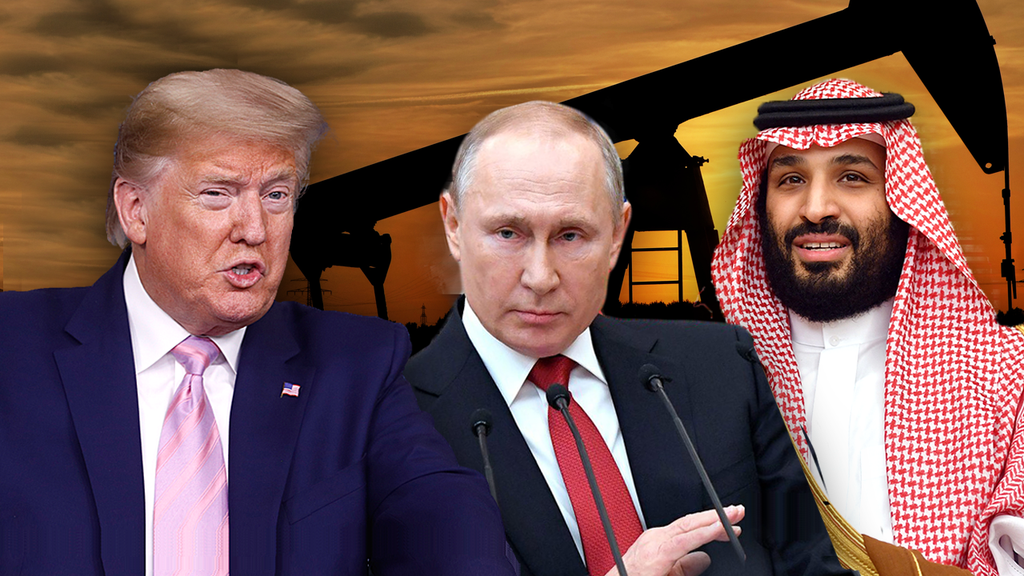Oil trims early gains despite deal between Saudi Arabia, Russia

The world’s biggest oil producers on Sunday agreed to historic production cuts, representing almost 10 percent of global supply, putting an end to a price war between Saudi Arabia and Russia.
West Texas Intermediate, the U.S. benchmark, was up 0.7 percent at $22.91 a barrel at 4:00 am ET Monday, after being up as much as 5 percent overnight.
Brent crude, the international benchmark, turned lower by 0.8 percent at $31.22.
“We took the responsive and responsible action to focus on adjusting crude oil production by 10 mb/d beginning on 1 May 2020, for an initial period of two months; then by 8 mb/d from July to December 2020; and by 6 mb/d for the period of January 2021 to April 2022, in the interests of producers, consumers, and the global economy,” OPEC Secretary General Mohammad Barkindo said Sunday in a statement.
The so-called OPEC+ group, which consists of Saudi Arabia, Russia and their allies, agreed to a 9.7 million barrel per day cut after four days of negotiations and pressure from President Trump, who came to the defense of the battered U.S. shale industry.
The U.S., Canada and Brazil will lower their output by about 3.7 million barrels per day, but some of that could come in the form of market-driven losses, according to The Wall Street Journal. Mexico, will lower its production by 100,000 barrels per day – less than the 400,000 that Saudi Arabia was originally seeking.
“The big Oil Deal with OPEC Plus is done,” Trump tweeted Sunday afternoon. “This will save hundreds of thousands of energy jobs in the United States.”
The price war came as the market was already seeing a supply glut that had worsened as the COVID-19 pandemic spread across the globe.
Global jet fuel demand has been reduced by about 500,000 barrels per day and gasoline demand has fallen by about 1 million barrels per day as a result of the demand destruction caused by COVID-19. Crude oil is refined into jet fuel and gasoline.
“The OPEC+ decision was not enough to offset demand losses,” Stewart Glickman, energy equity analyst at the New York-based CFRA Research, told FOX Business, adding the cuts are being made from the country’s elevated May 1 production levels.
“It may seem like a lot of barrels, and it is a lot relative to OPEC’s prior cuts in prior crises, but it is a drop in the proverbial bucket for this specific crisis,” he added.
While the deal may not go far enough, it was welcomed by the U.S. energy industry which has been left battered and bruised as a result of the price war. The S&P 500 energy sector has lost over 44 percent of its market value this year, falling to less than $538 billion.
“We welcome today’s announcement of an agreement by other producing nations to follow the lead of the global marketplace – and U.S. producers – to reduce supply to align with lower energy demand as result of the pandemic,” Mike Sommers, president and CEO of the American Petroleum Institute, said in a statement. “This is a significant agreement that will foster increased stability in energy markets to the benefit of both American energy consumers and producers.”
Source:https:foxbusiness.com/

